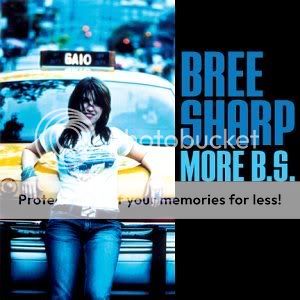 Hailing from Nashville, Justin Kline is a singer-songwriter whose work fits neatly into the power pop niche. The world has seen many similar musicians; however, Kline is a gifted multi-instrumentalist, providing this self-released EP with its vocals, guitars, bass and keyboards. As for his overall musical style, he takes the bounciness of mid-60s Brian Wilson (though hopefully without the cupboard full of skeletons), the brilliance of Brendan Benson and the all-round professionalism of pop revivalists Jellyfish, proving fully understands the best ingredients required to make a great power pop record.
Hailing from Nashville, Justin Kline is a singer-songwriter whose work fits neatly into the power pop niche. The world has seen many similar musicians; however, Kline is a gifted multi-instrumentalist, providing this self-released EP with its vocals, guitars, bass and keyboards. As for his overall musical style, he takes the bounciness of mid-60s Brian Wilson (though hopefully without the cupboard full of skeletons), the brilliance of Brendan Benson and the all-round professionalism of pop revivalists Jellyfish, proving fully understands the best ingredients required to make a great power pop record.
While each of the EP’s songs has something of note, that spark of greatness is at its most obvious during ‘How I Became The Wind’ – a track resplendent in sunshine grooves, stabbing keys, sleigh bells and a knowing smile. The drum pattern which drives the piece evokes the marching vibe from Jellyfish’s ‘Ghost at Number One’ – always welcome – while his distinctive vocal strives for pop perfection. The lead voice is counterbalanced by rather effective whoahs on the chorus section and harmony vocals are well placed during the verses. Aside from a spacious, organ driven break midway, ‘How I Became The Wind’ is a tight, near perfect, slice of power pop. ‘Heart Attack’ works its magic via a semi-acoustic shuffle before a stomping chorus takes hold. Kline’s high vocal pitch gives this sixties-inspired number a striking, if occasionally sinister edge. Although the approach is a standard jangle-pop one, the punch of the chorus gives the arrangement an extra sharp quality. The closing section has a slightly claustrophobic quality, leading to Kline’s vocal cracking under the delivery of the last line. ‘All I Need’ features one of Kline’s best vocals. Here, his higher registers are saved for a multi-vocalled chorus; musically, it’s another fabulous number – one which wouldn’t be out of place on Mark Bacino’s ‘Pop Job’ long-player (which, you all really should check out if you haven’t already). While the verses have a light airiness, it’s the sharpness of the chorus, followed by a multi-layered vocal and Brian Wilson-esque theramin sound which provide the track’s most memorable elements.
‘Singing In The Air’ opts for a rumpty-tumpty rhythm which hints at country-pop, especially with the subtle use of steel guitar and twangy guitar lead midway. You’d be hard pushed to mistake it for a country tune beyond that though, as Kline’s vocal retains the pop shine it delivers on the rest of the EP. ‘Kaleidoscope’ offers something a little more complex with its fuzzed up vocals, guitars and harder edges. The punch on the chorus once again recalls Jellyfish, Jason Falkner and Brendan Benson, while a trippy instrumental break utilises understated oohs and ahs against a gentle mellotron-esque sound, making it another hugely enjoyable listen.
The closing number, ‘Sunshine’ sounds, at first, like it’s going to be a slightly lower-key acoustic song; the acoustic elements here are more pronounced, that’s true, but once everything finds its groove, it becomes a solid piece of bubblegum pop. For the first couple of spins it was as good as most of the EP’s material, then after a few more listens the cracks began to appear: the overly optimistic lyrics are a little cloying, but the musical arrangement helps carry it off…almost. That optimism (which might be a religious thing, I’m undecided) gives the EP a positive ending, but its over-enthusiasm, for me, makes it the most skippable track.
Although a little flawed in places, ‘Six Songs’ is highly recommended for power pop connoisseurs; a release which ought to place Justin Kline alongside Mike Viola and Mark Bacino as one of the great champions of timeless pop.
Get mp3s here.
August 2010




